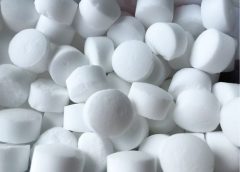As a plumber, you likely deal with clogged sinks and leaky pipes regularly. If you offer a service that sells water softeners, you probably know about the negative effects of hard water. Hard water is a common problem in residential structures, so it’s important to understand what it is and how to manage it. Check out our list of the many benefits of having a water softener.
Lengthens the Lifespan of Appliances
You can expect many difficulties when a client’s home has hard water, such as negative effects on pipes and appliances. Hard water contains calcium and magnesium, which can accumulate within the pipes that carry water to machines like dishwashers and coffee makers.
As more minerals line the piping, the appliance must work harder to use water. The pipes may burst from the pressure, and the machine will eventually break. Long before this happens, an appliance will lose efficiency, wracking up energy bills for your client. A water softener can greatly extend the lifespan of appliances because it can mitigate limescale.
Has Great Effects on the Skin
Hard water can also affect the skin. It leaves a filmy residue that feels like it cannot be washed away, which can lead to dry skin. Water softeners mitigate this problem entirely, leaving the skin clean and free of mineral residue. Smooth and clean skin is a great result of having a water softener.
Saves Money
Soft water lacks the minerals to clog appliances and pipes, reducing the need for repairs and replacements. As mentioned previously, high pressure in water pipes means appliances have to work harder, which can damage them. Replacements might cost thousands of dollars that your client could have spent on a water softener system. If you offer that service and all its benefits, customers will flock to you!





